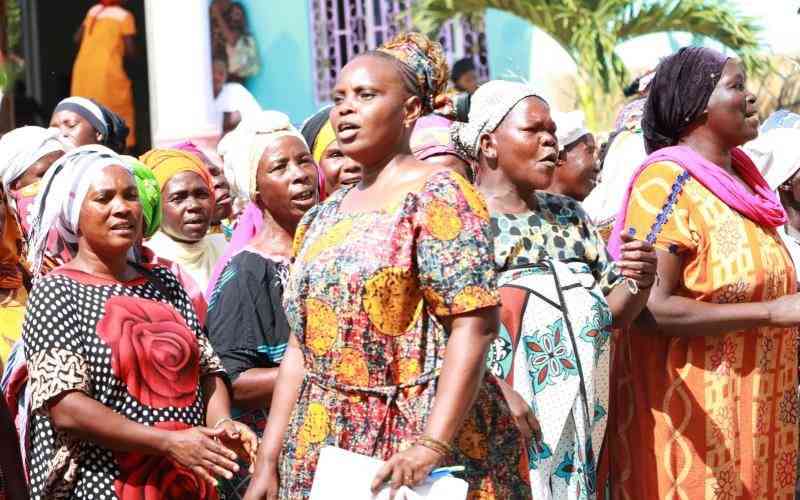×
The Standard e-Paper
Smart Minds Choose Us

Four years ago, Furaha Charo, a widow from Kilifi, was evicted from her matrimonial home by in-laws, a rampant occurrence in most communities.
The 43-year-old mother of six is living as a squatter with barely a roof over her head and enough food for her children. "My life has been hell since my husband died I was thrown out of my matrimonial house. I joined other widows on the piece of land that they had settled on as squatters," said Charo.